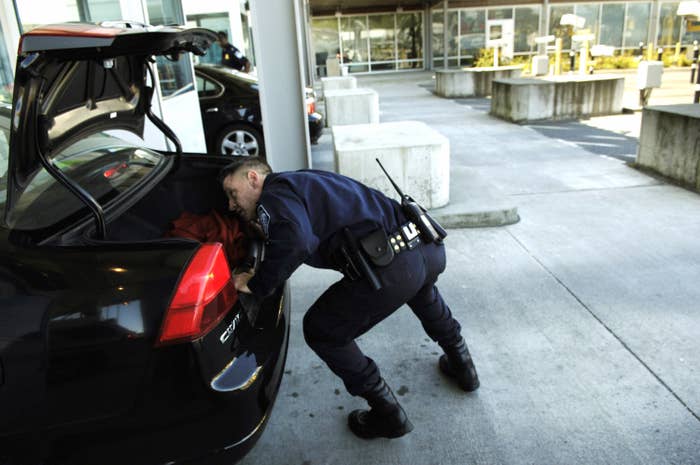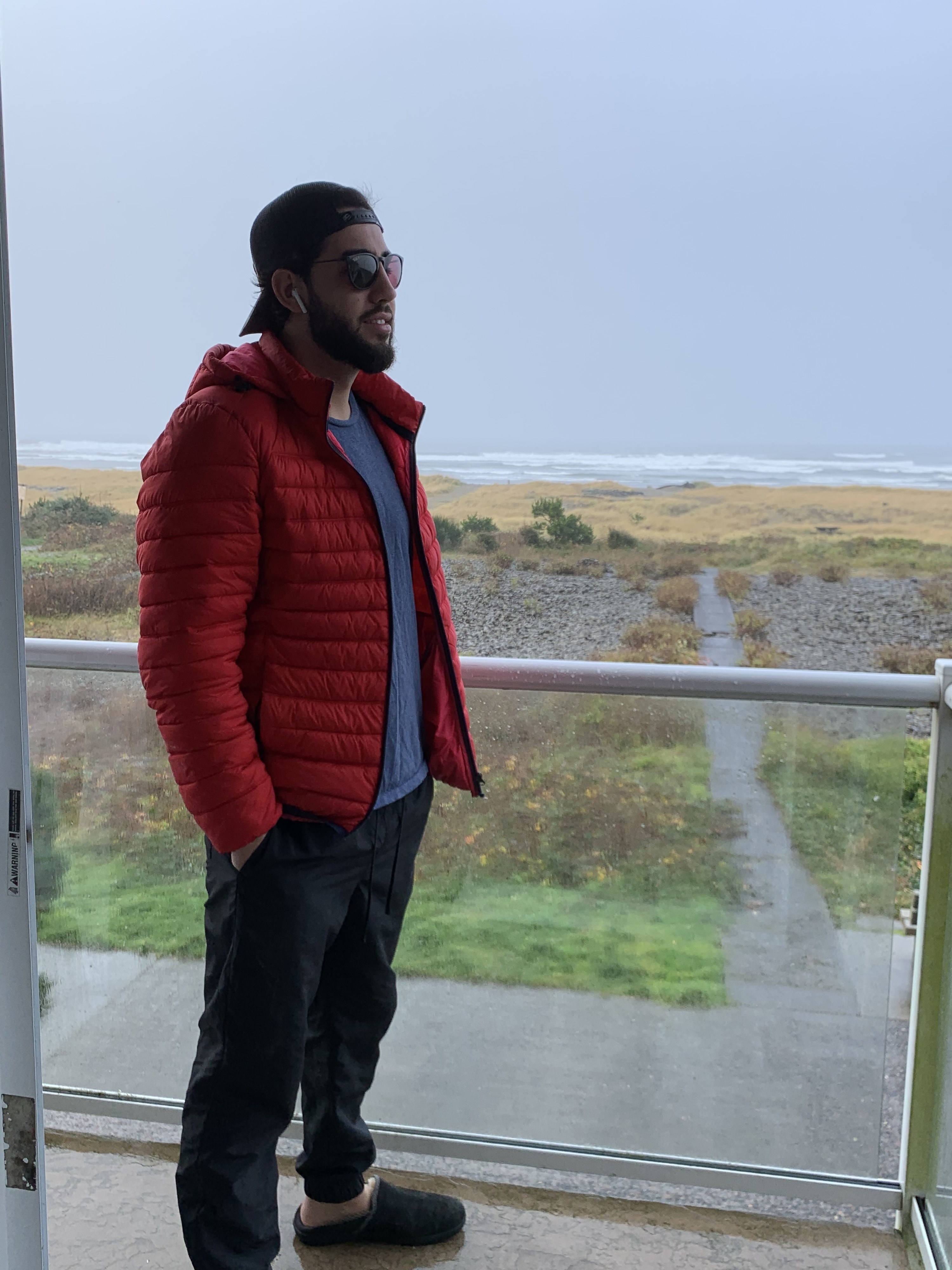
Iranian-born US citizens and residents were questioned by Customs and Border Protection officers for hours after returning from a concert in Canada to Washington state this weekend, sparking widespread fear on social media that the US government was detaining people of Iranian descent.
The concerns are amid extremely high tensions between the US and Iran, whose leaders have spent the past several days threatening military strikes. President Donald Trump ordered a drone strike that killed Gen. Qassem Soleimani, a top Iranian military commander who directed bloody conflicts around the Middle East, days after Iranian-backed militia threatened staff at the US embassy in Baghdad.
Mona Zabihian, a US citizen who was born in Iran, told BuzzFeed News in an email that she was returning to the US at a port of entry in Blaine, Washington after attending a concert by an Iranian performer in Vancouver with four other people: Her boyfriend, who is Iranian but was born in Germany, and three other US citizens born in Iran.
When they tried to cross, the group she was with was sent to secondary inspection by CBP.
"After waiting for about what seemed like an hour, they called me and questioned me. They wanted to know the names of all my immediate family members, their birthdates, their location, and their occupation," Zabihian told BuzzFeed News. "They asked when was the last time I visited Iran."
It's unclear how many people of Iranian descent were sent to secondary inspection Saturday night after trying to enter the US through Blaine, but the Council on American-Islamic Relations’s Washington state branch said there were “more than 60.” Matt Adams, legal director at the Northwest Immigrant Rights Project, whose group spoke with two families that were questioned, told BuzzFeed News the number was at least 40.
The details of CAIR’s press release spread widely on social media. The release also cited "a source at CBP" that "reported that the Department of Homeland Security (DHS) has issued a national order to CBP to 'report' and detain anyone with Iranian heritage entering the country who is deemed potentially suspicious or 'adversarial,' regardless of citizenship status."
CBP officials pushed back quickly, saying that "social media posts that CBP is detaining Iranian-Americans and refusing their entry into the U.S. because of their country of origin are false. Reports that DHS/CBP has issued a related directive are also false."
Officials said that, “Based on the current threat environment, CBP is operating with an enhanced posture at its ports of entry to safeguard our national security and protect the America people while simultaneously protecting the civil rights and liberties of everyone.”
“Processing times are the result of the current circumstances, including staffing levels, volume of traffic, and threat posture,” CBP added. At Blaine, “wait times increased to an average of two hours on Saturday evening, although some travelers experienced wait times of up to four hours due to increased volume and reduced staff during the holiday season.”

Zabihian said her group waited for more than five hours before they were allowed to enter the US.
Her group and other Iranian-born people, which included US citizens, were held in a room without enough seats for everyone and with only one bathroom, Zabihian said. If they wanted to get food from a vending machine they had to be accompanied by a CBP officer to another section of the port of entry.
"Amongst us anxiously waiting were children and pregnant women," Zabihian said. "There were children and parents rolled up on the floors trying to get some physical rest while anxiously waiting to be released back into their country, the United States of America."
Adams's organization spoke with two families with kids who were questioned by CBP late Saturday and early Sunday. The families said they were asked about any military activity or history.
He said he’s concerned about the US reasoning for sending people to secondary inspection and questioning them about their travels and military backgrounds.
"Are they looking for ways to strip people of their status?" Adams told BuzzFeed News. "It sounds like a fishing expedition based solely on heritage."
Another US citizen, a mother born in Iran and traveling back to the US with her children, told BuzzFeed News she was in secondary inspection for six hours on Saturday at the Blaine port of entry. She declined to give her full name out of fear of retaliation.
She was questioned about her work, citizenship, and whether she had been in the military. CBP officers also asked her to provide the names and birthdays of her family members.
She said there were about 20 other people, most if not all of Iranian descent, waiting with her. The mother said that the CBP officers were polite and even provided the children with coloring books and juice while they waited.
Still, her children, ages 5 and 7, kept asking her why they were having to wait for so long.
"I burst into tears, I was so frustrated," she told BuzzFeed News. "What do I tell a 5-year-old? I don't want them to know we were there because their parents were born in Iran. I don't want them to feel different."
Another man said he was in secondary inspection for slightly over eight hours — from 7:30 p.m. Saturday until nearly 4 a.m. Sunday — while 30 to 40 people who appeared to be Iranian or Iranian American were also stopped.

Mohammad Halbawy, a US citizen born and raised in Seattle, Washington, told BuzzFeed News he was driving back from Vancouver with his uncle, a Canadian citizen, when they were told to pull into the port of entry and wait in the lobby. Halbawy is half Lebanese and half white.
"When I walk in, the first thing the [CBP agent] said was, 'Yeah you picked the wrong time to travel. Haven't you seen the news?'" Halbawy said. "Literally everybody was Persian or had a connection to Persia. We were the lone Arab people."
CBP agents took his phone and asked for its passcode. Halbawy provided the passcode after he was told by CBP officers they would get into it eventually without it, only he'd have to wait even longer while they got access. CBP took their phones for two hours before returning them, Halbawy said.
Like the other people who spoke to BuzzFeed News, Halbawy was asked about his background and his family's information. He was also asked if he served in the military or had any weapons training.
"I told them it doesn't make sense to have us here for five hours and make us stare at a wall when they have nothing on us," Halbawy said. "I wouldn't be coming across the border if I didn't have a clean record. I'm dumbfounded here, I don't know what to tell anyone other than it was a joke."


